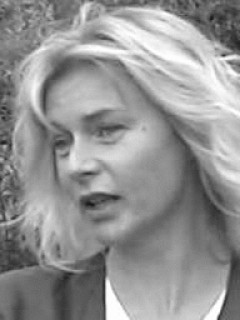The atmosphere was serious and we risked being overawed by the numerous marble statues of stuffy-looking Victorian gentlemen with bridges and monuments to their names and smug expressions on their faces. But various pillars of today's society returned us quickly to the land of relative truths.
The second speaker, a barrister a last minute stand-in who commanded attention yet spoke without notes or visual aids assured us cheerfully that there was no such thing as justice, and emphasised the need to either support or destroy an argument as the principal reason for any particular line of questioning.
From the other side of the court room, a policeman colourfully described how CCTV had resulted in suspects being 'absolutely goosed', but also outlined techniques of conversation management that could impress the most process-led qualitative researcher: the establishment of a person's 'base-line', the searching for the 'energy word' in the sentence of the average person who can think at 300 words per minute but only express 200 of them at a time.
His appreciation of today's society as a visual one, with listening as a dying skill, was persuasive. More practical skills were offered by a family therapist circular questioning, contractual agreements, the importance of an individual's 'narrative' and the positive re-framing of comments.
Yet closer to our home industry, things were not quite what they seemed. Chris Bowden of BMRB International asserted confidently that in the 'typical' focus group only 31/2 people were 'virgins' and, scarily (or perhaps there's an opportunity here?), one person could, at a minimum of six-plus attendances, have attended more groups than the junior researcher on the case.
We were confronted by the vision of 700 groups happening in the UK each evening, of the population being 'used up' within 20 years, a sort of human global waning, in research terms. He introduced the concept of 'burn-out'. It wasn't clear whether he meant researchers or respondents.
Mark Earls, planning director of St Luke's, then stepped in and cast even further doubt on the practice. In an age of information over-supply and colossal consumer choice, marketing just isn't working any more. Research may now, he asserted, mean paying people to have an opinion about something they just didn't have an opinion about.
He suggested that the qualitative research industry should re-cast itself as 'tipsters', reminding us that the consumer is future-blind, and that it was our ability to divine and to generate ideas that would secure our own usefulness in an increasingly challenged marketing environment.
Jonathan Fletcher, DVL Smith Group, said the same thing but with staggeringly impressive scientific statistics and without the funny pictures.
But the piece de resistance had to be the 'lady from P&G', Pamela Baillie. Without a trace of irony, a full philosophical turnabout seemed to have been executed. Where had functional benefits and quantifiable business thinking gone? She invited us to stand on our seats before entertaining us with a video containing edited highlights of industry figures such as Neil Cassie holding a mass candlelight rally, and Bill Pegram in cut-off jeans coaching a group about the expression of feelings.
Well, did we search out truth? Truth, capital T, was fortunately not found, but truth, small 't', probably was. Listening to outside speakers was illuminating not just in the precise techniques and tools they employed, but also in the confidence with which they used them. We share common roots social science but these experts from adjacent industries seemed to lack the self-deprecation and self-doubt which so often dog qualitative research and which were so amply demonstrated by the day itself.
One has to wonder whether some retrenchment back to social psychology roots may not be good for the qualitative research industry, making it less dependent on its fickle and often flaky marketing masters, surer in its techniques and its expertise. And that might allow for the proper separation and recognition of the sister craft, the 'tipster' trade, where ideas are formulated and inspiration instilled, without so much as a consumer in sight. As for Trends (capital T again) well, there wasn't much of that, but perhaps next year


